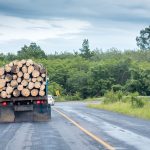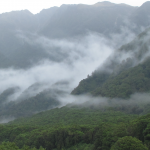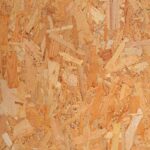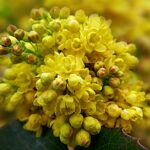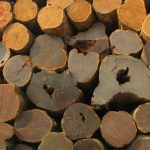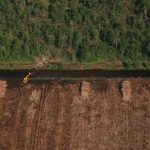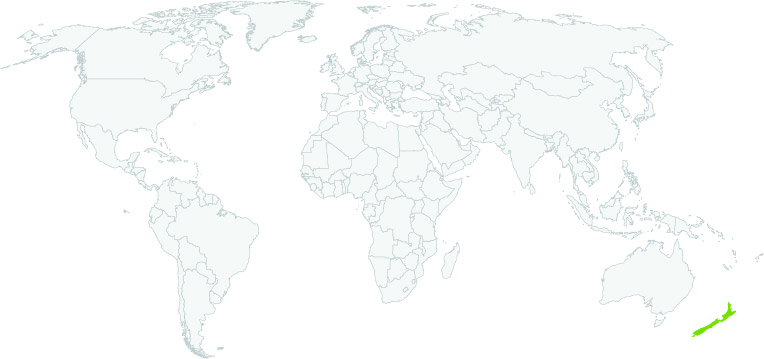
New Zealand is exporting increasing volumes of lumber to Vietnam, especially Radiata pine. the major growth in trade comes after the NZ-based distributors of custom-cut Radiata pine and Vietnamese furniture manufacturers signed major deals more than five years ago – including a deal between New Zealand’s Sequal Holdings Ltd. and Vietnam’s VinaFor Saigon. Radiata pine’s dimensional stability is a crucial wood property for interior fittings and joinery uses. It has low shrinkage, which contributes to its stability. It can be nailed or joined efficiently with good resistance to splitting, which is another important attribute.
As Thailand inches forward on its decades-old vision for a “logistics corridor” connecting the Pacific and Indian oceans, local opposition and political instability threaten the plans. the proposed 90-km highway-rail link would cut across the Malay Peninsula, connecting a planned port facing the Indian Ocean in Ranong province with another port planned for the Chumphon province, along the Gulf of Thailand and with a lane to the Pacific Ocean. A special economic zone would be established nearby.
Thailand’s US $2 billion forest and forest products industries, both export and domestic, will benefit significantly from the new port. The bulk of domestic wood supply comes from plantation species such as teak and eucalyptus, but also wood derived as a by-product of agricultural processes, such as mango and durian wood. By far, the largest volume of this type of wood is rubber. Thailand is also a major timber importer from many countries, not only within the Asia-Pacific region but also from Africa, the EU and the Americas.
This is mainly processed into products that are exported again. The range of wood types and sources is broad and includes softwood from New Zealand and South America, high-quality species from Africa and the Pacific, and rubberwood and teak from Thailand’s neighbouring countries.
Mana Taiao Tairāwhiti and the Gisborne District Council took action in the Environment Court at Auckland against China Forestry Group NZ and management company Wood Marketing Services for operating in the Kānuka Forest in the Upper Waimata River catchment.
The court ruling, released on Friday, said China Forestry Group NZ and Wood Marketing Services must cease dumping woody debris and sediment. Other requirements include slash removal and stabilisation works, water controls, slash catchers monitoring and maintenance, and reporting. A new order also concerns the retirement of part of the forest.
Through this issues paper, we are seeking to start a conversation about the operational details required to implement New Zealand’s statutory legal harvest assurance system. We are seeking to gather a broad base of views on the ideas we have, and assumptions we can make, in designing the details of how our legal harvest assurance system will work in practice. The information we gather will be used to inform options for consultation on regulations to implement the legal harvest assurance system.
The second issues paper will then build on this information and consider the operational details to put these concepts into practice. For example, feedback on questions what laws are relevant to whether something has been legally harvested in this paper will inform the information needed in a legal harvest statement.
FSC has suspended Ernslaw One’s certification after a forest slash caused by storms in 2018 caused a surge of woody debris to flow down rivers and onto the beach, damaging homes, farms, roads, bridges and beaches in Tolaga Bay.
Part of the Oregon Group, owned by the Malaysian-based Tiong family, it has a subsidiary company and processing arm, Winstone Pulp International, which undertakes lumber and pulp manufacturing. In December 2022, a court ordered the conglomerate to pay NZ $225,000 for “serious forestry offending related to a storm event in Uawa/Tolaga Bay in June 2018.” The company is now appealing the FSC suspension, with a spokesperson for Ernslaw saying that it was “not privy” to findings “because the audit was carried out by a third-party body (SGS) and not Ernslaw itself.”
While this article is mainly about the closure of a sawmill in New Zealand, it notes the large amounts of engineered wood products from China into New Zealand, the rapid expansion of laminated veneer lumber (LVL) plants in China, and the likelihoods that the Chinese imports “likely also include logs from Russia processed into LVL in a ‘back-door diplomacy’ arrangement by the two countries.”
The Pacific Islands are working towards a new Pan-Pacific Standard for Sustainable Forest Management. The new standard could include Fiji, Papua New Guinea, the Solomon Islands, Tonga and Vanuatu.
the new standard would greatly assist Trans-Tasman importers and provide a “green lane” for tropical timbers, most importantly demonstrating sustainable forest management. In New Zealand, the new standard could significantly assist in monitoring certified products imported into and sold through NZ building and construction networks.
This provides a link to the New Zealand Parliamentary Counsel Office website, and the text of the Forest (Legal Harvest Assurance) Amendment Bill, which received Royal assent and became an Act of Parliament on 17 May, 2023.
A new Act will stop the import of illegally harvested timber and also provides the international market with confidence in New Zealand’s timber and timber products by introducing a new legislative framework for legal harvest assurance.
Minister Henare said major trading partners such as Australia, United States, the European Union, Vietnam, China, Indonesia, Japan and Republic of Korea have implemented or are developing their own legislation to prevent the trade of illegal harvested timber.
“This assurance system will bring us in line with these countries to ensure the protection of New Zealand’s forestry and wood processing sector. We export nearly 85 per cent of our timber products to these countries. Without a legislative scheme for legal harvest, we run the risk that we can no longer export to these markets.”
The Act allows for up to three years for commencement and a further 12 months for compliance. The Ministry for Primary Industries and Te Uru Rākau – New Zealand Forestry Service will be administering and facilitating its implementation. During this time, officials will consult and engage with industry to develop regulations that are practical yet robust.
Deforestation Inc. reporters in a dozen countries investigated weak government efforts and loopholes allowing companies to keep trading Myanmar teak, a natural resource controlled by the military junta.
The Deforestation Inc. investigation by ICIJ and its 39 partners found that timber traders in three continents have continued to import Myanmar teak by the ton to supply shipbuilders and furniture manufacturers around the world, while consumers may be unwittingly financing the junta’s repressive campaign.
The reporters visited boat shows in Fort Lauderdale, Amsterdam and Paris to learn about the international teak market. They interviewed timber traders in 11 countries and pored over documents leaked from Myanmar’s tax agency and shared with ICIJ by Justice for Myanmar, a human rights group, U.K.-based news outlet Finance Uncovered and Distributed Denial of Secrets, a data transparency group.
********
Cases from Slovenia, Croatia, USA, Italy, the Netherlands, Germany, New Zealand, Turkey, Taiwan, France, and India are included.
Fiji Hardwood Corporation Ltd (FHCL)’s Forest Certification Gap Analysis and Roadmap Report for certifying mahogany has been launched.
FHCL was established in 1998 as a State-owned Enterprise to manage the Government of Fiji’s hardwood plantations.
Fiji developed its own Mahogany Branding and Licencing Act, which was endorsed by Cabinet in 2011.
Proposed new legislation to reduce the risk that timber imported into Aotearoa New Zealand is sourced from illegal logging is a positive first step but it should go further, the Green Party says.
The Forests (Legal Harvest Assurance) Amendment Bill passed its first reading in Parliament last night. The Bill will establish a legal framework intended to ensure that timber logged overseas and imported into Aotearoa New Zealand can be verified as being legally harvested.
A court filing reveals lucrative timber exports were a strong focus of forest-clearing by a part-Kiwi-owned firm operating in an area with substantial tropical rainforest in West Papua
Documents tabled in a New Zealand court case show how a Kiwi developer and a company which has cut down Papuan rainforest intend to make around $110 million from the timber to make floors and decks – in stark contrast to statements made in a recent Newsroom investigation.
Newsroom has secured the documentary evidence that lays out in detail how an Indonesian company linked to a New Zealand property developer intends to make close to A$100 million from clearing trees in an area of primary rainforest in Papua.
New Zealand is committing to trade only in legally harvested timber with the Forests (Legal Harvest Assurance) Amendment Bill introduced to Parliament today.
Under the Bill, timber harvested in New Zealand and overseas, and used in products made here or imported, will have to be verified as being legally harvested.
Fiji’s mahogany sector was estimated to be valued at $213 million, according to the last Forest valuation in 2008.
Another Forest valuation is expected to be carried out this year. However, without proper certification, the true value of mahogany exports is yet to be realised. Most of Fiji’s mahogany timber market is South America and the United States of America, where it is used for producing guitar components.
Australia and New Zealand markets however have closed off mahogany timber trade from Fiji until proper certification is realised.
Click here to access the Global Illegal Logging and Associated Trade (ILAT) Risk assessment tool and to download the Forest Trends User Guide describing the functionality of the ILAT Risk Data Tool.
Click here to access the Cattle Data Tool.


